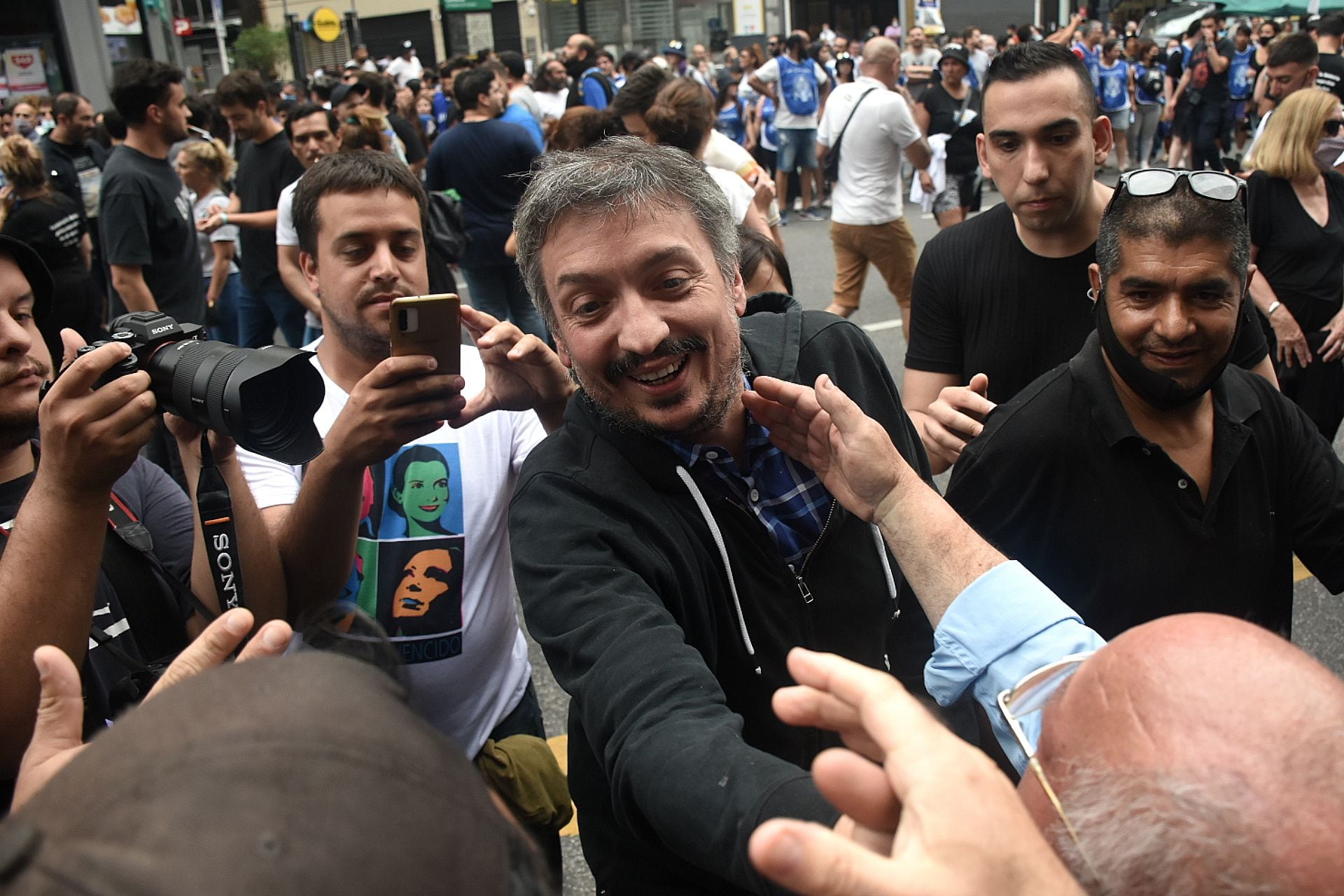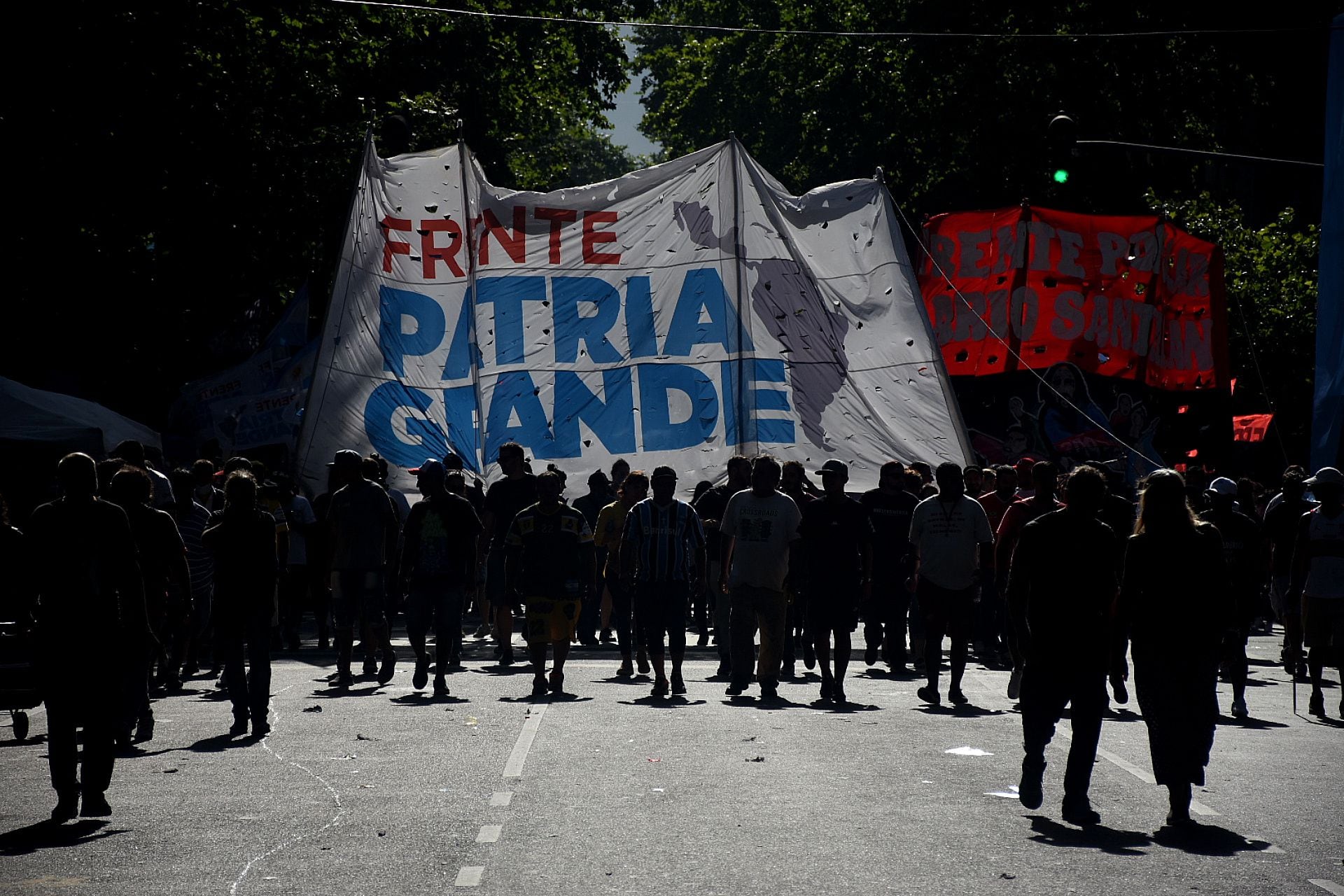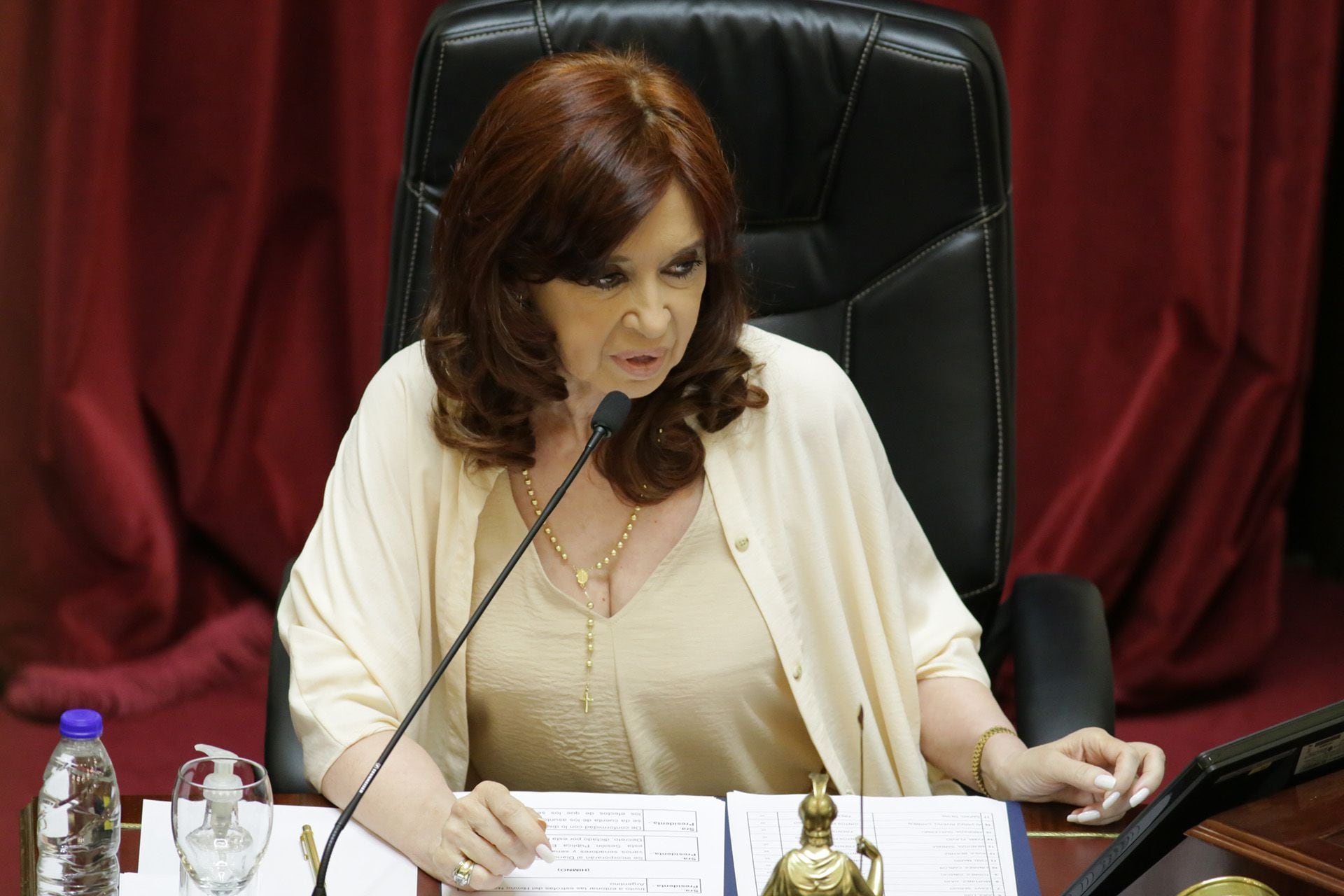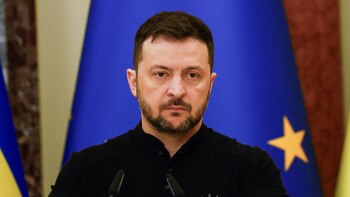
In the convulsed context of strong inmates in the Government, which reached unprecedented levels in recent weeks due to the deep differences over the agreement with the IMF, the moderate wing of the Government, led by Alberto Fernández, and La Campora, will measure strength on March 24, an iconic date for all the sectors of the Front of All.
Thursday is considered by camporists and albertists as a watershed. If they show up together, it will be because there is an attempt to heal the deep wounds caused by La Campora's rejection of the pact with the Fund to avoid default. If they go separately, it will be a new sign of the breakdown that the ruling coalition is going through. At this time there were dialogues below between second lines to see if positions are approaching or the differences deepen.
Kirchnerism is planning a demonstration that will begin at the headquarters of the former ESMA and head to Plaza de Mayo. They swear it will be massive. It has been convened unusually in advance, since the beginning of March, through social networks and internal channels, and each related organization is being thoroughly invited to gather the greatest number of participants.
In front of the tragic Núñez building and on the stage that will be set up in front of the Casa Rosada, the front page of the group will be present, with mayors, deputies and senators, and Máximo Kirchner at the head. The presence of Cristina Kirchner is not ruled out, but it has not yet been confirmed. It will be the organization's first march since it took over the Frente de Todos -due to the pandemic- and its debut on the streets this year, following the profuse series of post-election demonstrations, at the end of 2021.
The Kirchnerists, as Infobae was able to reconstruct, characterize this march as a demonstration of internal strength in the field of Human Rights, where they feel at home because of their original rhetoric, for their relationship with Mothers and Grandmothers, and because the agencies in the State operate under the direction of related officials, with Secretary Horacio Pietragalla as the main exponent. They believe it will serve to encourage the momentum and cohesion of the militancy and leadership, shocked by the recent controversial political decisions of the chief, Máximo Kirchner, with the abandonment of the presidency of the block of deputies as the main milestone. But, above all, they will use the date to establish a position against the onslaught of albertism.

At the same time, four days after the 24th, Alberto Fernández has not yet decided whether to join that call, or lead a separate event. The President faces a dilemma. If he attends, his presence will be evaluated as a way of folding to the group of Máximo Kirchner, which has just subjected him to severe slights in Congress with the rejection of the law enabling the new indebtedness with the Fund and which he was able to approve thanks to an agreement - to which he was forced - with Together for Change. If you plan a staging simultaneously with that of La Campora, it will be a new illustration of the breaking of the All Front. The problem is that the president has not yet determined to break definitively.
The dilemma is directly linked to the recent outbreak of deep-rooted differences in the governing coalition, which reached an unusual point last week with the crossroads of public messages and omissions following the attack on Cristina Kirchner's office. Since then, the Frente de Todos has entered a stage of latent conflict, in which no one dares to determine whether differences will result in changes of figures in the organizational structure of the State, or whether there could be a reunification in fact.
Alberto Fernández, as Presidential Spokesperson Gabriela Cerruti admitted twice this week, does not speak to Cristina Kirchner. And yesterday he made the economic announcement that he proposed as a relaunch of his administration - the controversial “war against inflation” - surrounded only by officials from his kidney, with the Minister of Economy, Martín Guzmán, one of the most beaten by La Campora, in the center.

No change?
Last week, in the face of the refusal of Kirchnerism in Deputies to support the most important law of the Executive, spirits soared over an “albertist” advance on the areas handled by La Campora, dormant since last year's elections. Close to the President, they considered that this week would be a turning point in the relationship with Kirchnerism and that this, following the decision of the President, could be translated into the distribution of office.
But the statements aimed at maintaining “unity” made by Alberto Fernández from Tucumán on Friday morning punctured the balloons of aspirations in many social organizations, intellectual and parties that support the presidential candidacy.
Within a few days, the momentum that officials and sectors related to Alberto Fernández - basically social movements, trade unions and justicialist governors - had taken to lose momentum to gain seats in the State and displace La Campora from the main banks. Despite the vote against the agreement with the IMF between Máximo Kirchner and Cristina Kirchner, which represented a virtual break in the governing coalition, expectations that the President will purge camporismo were deflated towards the end of this week.
At Casa Rosada they say that Alberto Fernández does not plan to make changes, at least immediately. “The confrontation is going to go the other way, not because of changes in figures but because of the discursive and symbolic,” an important official who frequents the head of state told Infobae.
Anyway, the people themselves insist. “It is now or never,” say some Albertists, aware that the approaching economic scenario is dark, with the threat of the consequences of the war in Ukraine as an aggravating factor. “It's possible and necessary. To the extent and harmoniously,” added an official very close to the President, consulted by Infobae. In response to a question about the meaning of the phrase “to its measure”, he answered, enigmatically, with a quote from Juan Perón: “With common sense, managing the times of politics.”
Despite the support for his re-election, which, they say, remains intact, there is anger and frustration in the moderate wing of the Government at the repeated reluctance of the head of state to move forward. They had already pushed for this to happen last year, after the general elections where the Frente de Todos traced the PASO result and where Cristina Kirchner was weakened in the Senate. But there wasn't a single movement.
In the Cabinet, they summarized the President's argument to justify the impossibility of whitewashing the rupture on concrete facts: “If La Campora leaves and Cristina leaves, Alberto lasts 15 days. The power is given to you by the votes. And we know who owns the votes. If they leave, and in 15 days we measure Alberto, he is not enough for five points. He wouldn't bank that.”
Meanwhile, in Kirchnerism, where they have been warning since the vote in deputies that “no one is leaving”, they boast that their prediction will be fulfilled. Last Wednesday there was a meeting of the hard camporism to decide what direction to take in the coming weeks in the context of high tension at the top of the All Front, where they decided not to leave any place in the State.
“The definition is that you remain within the Government, but the consequences or adjustments contained in the agreement with the fund will be made public in each area in which we have a concern,” said a man from the camporista kidney about the meeting, where it was also decided to vote against the agreement with the IMF in the Senate and issue the controversial document that became known after Cristina Kirchner left the premises before the vote.

The reasons they put forward in the camporo leadership are obviously due to the need to have the funds they manage in the State to campaign - they own the most important funds, starting with ANSES, the PAMI and YPF - although they also argue that they want to contribute to institutionality. “We are the government, not them,” said, bluntly, an official responding to the Kirchner orbit.
For Thursday, considering that one of his bases of support is the decentralized structure of the PJ governors, Alberto Fernández does not rule out moving inland to make his own display of power from a province on a day of high symbolic voltage for progressivism.
It also manages the possibility of relying on the mobilization planned by social movements from another part of the City, far from the former illegal detention center. The Evita Movement, which is aligned with the President and has historical differences with La Campora, convened its people at 14 o'clock at the corner of 9 de Julio and Av. de Mayo, from where they will walk en masse towards the square. “We are summoned by human rights bodies. And we mobilize with all those who feel called, without sectarianism or exclusion,” an important reference for social organizations related to Alberto Fernández told this media outlet. At the very least, the phrase is a contradiction, if not a euphemism. Social leaders, on the other hand, have been asking Alberto Fernández with emphasis more decision-making places in the State, which would inevitably imply an exclusion from Kirchnerism. For now, the President has not decided whether or when he will do so.
KEEP READING:
Últimas Noticias
Debanhi Escobar: they secured the motel where she was found lifeless in a cistern
Members of the Specialized Prosecutor's Office in Nuevo León secured the Nueva Castilla Motel as part of the investigations into the case

The oldest person in the world died at the age of 119
Kane Tanaka lived in Japan. She was born six months earlier than George Orwell, the same year that the Wright brothers first flew, and Marie Curie became the first woman to win a Nobel Prize

Macabre find in CDMX: they left a body bagged and tied in a taxi
The body was left in the back seats of the car. It was covered with black bags and tied with industrial tape
The eagles of America will face Manchester City in a duel of legends. Here are the details
The top Mexican football champion will play a match with Pep Guardiola's squad in the Lone Star Cup

Why is it good to bring dogs out to know the world when they are puppies
A so-called protection against the spread of diseases threatens the integral development of dogs




